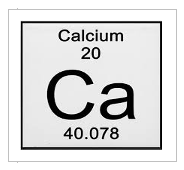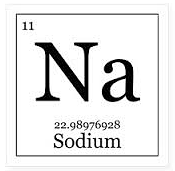Calcium Benefits
Calcium is the chief supportive element to the bones and teeth. About 70% of bones by weight and give the body its strength and rigidity. About 99% of the calcium in the human body is held in the teeth. The remaining 1% of the calcium circulates in the bloodstream, this helps to contract muscles and helps regulate the contraction of the heart. When we take calcium, it assembles in the small intestine and passes from there either into the blood stream or ultimately into the bones hormone secretions of the parathyroid and thyroid glands. Parathyroid hormone and calcitonin respectively. Calcium deficiency is the cause of high hypertension, high blood pressure and colon cancer and suppresses the growth of polyps that can be cancer.
Sodium Benefits
An excess of sodium can cause Edema, an accumulation of extra cellular fluid, especially in conditions such as congestive heart failure. Low sodium intake leads to a lowering of blood pressure and beings about diuresis riding the body of the excess extra cellular fluid.
Sodium functions with chloride and bicarbonate to maintain a balance of positive and negative ions (electrically charged particles) in your body fluids and tissues. Sodium is a vital component of nerves as it stimulates muscle contraction. Sodium also helps to keep calcium and other mineral soluble in the blood and as well as stimulation the adrenaline glands.
Potassium Benefits
Potassium is an electrolyte (a substance that maintains your body fluid levels), this will help regulate blood pressure and heart function. Increasing your potassium intake can lower your blood pressure. Those individual with existing hypertension, as well, a Harvard study shows that men who took a potassium supplement increased their incidence of stroke by 60% compared to men who did not. Potassium neutralizes acids and restores alkaline salts to the bloodstream. Potassium works with sodium in all cells including the nerve synapses to maintain or restore membrane potential and to assist in metabolic process. Potassium is critical to our cardiovascular and nerve functioning regulating the transfer or nutrients into cells and facilitating muscle energy. Aids rheumatic or arthritic condition causing aids to leave the joints and ease stiffness.
Potassium is crucial for the elimination of waste. Potassium is also a natural pain desensitizer. It helps control convulsions, headaches and migraines and also promoting faster healing of cuts, bruises etc. Potassium contributes to a sense of well being. The potassium molecule needs to be small enough to enter an individual cell and must be inside a water molecule.
Some symptoms of Potassium deficiency include:
- Poor circulation
- A bluish tint to skin
- Chronic fatigue syndrome
- Diabetes
- Ear Aches
- Heart palpitation
- Hypertension
- Insomnia
- Intestinal pain muscle
- Weakness
- Oppressive breathing
- Pain in the eyes
- Prolapsed uterus
- Swollen glands tissue
- Anaemia
- Water retention



